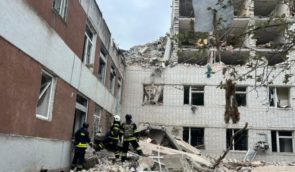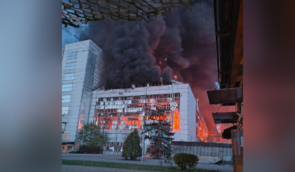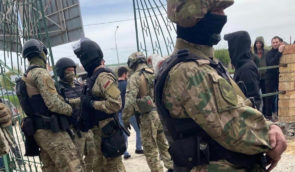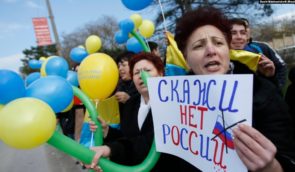Psychological Problems of Displaced Children
Psychologists maintain that children from the area of the ATO have a hard time adapting to their new environment. They find developmental delays, sleep problems, and speech problems.
Radio Liberty reports that there are 50 psychologists in Kyiv providing free assistance to migrants from the Donbass. They visit people in need of rehabilitation twice a week.
Marina Breslavets, a coordinator for psychological help for migrants from the east of Ukraine, notes that a child who is experiencing stress requires the active support of parents. However, sometimes adults themselves cannot overcome their psychological trauma and are seeking assistance.
“We primarily focus on children. When we come to a town, the first thing we do is organize groups of children. Parents, unfortunately, are not specifically contacted. There have been a number of instances where individuals turn to us themselves, but it is important to work with the entire family. Sometimes, because of the children, we are able to bring parents in as well,” says Breslavets.
Children receive help through such things as art therapy and puppet theater. Children often quickly forget about their experiences and are able to return to normal life themselves. It depends on the state in which the displaced came from the combat zone and how long they were there.
“Actually, we should follow the example of children and live for today. The sun shines? Very good. Met a good person? Even better,” said Nelia Nizhnik, a volunteer at Help Center for Displaced who works in the children’s room on Frolivska street in Kyiv.
Psychologists give simple guidance for parents of displaced children: to spend more time outdoors, read books, to establish sleep and food regimen, exercise, and, most importantly, to surround the child with love and attention.
Earlier, Ukrayinska Pravda reported that 829,373 people were displaced from the temporarily occupied territory and areas of ATO into other regions. According to the State Emergency Services, 808,872 of them came from the Donetsk and Luhansk regions and 20,501 from Crimea and Sevastopol, including 145,501 children and 384,525 people with disabilities and the elderly.
The majority of the displaced are in the Luhansk, Kharkiv, Donetsk, Dnipropetrovsk, Zaporizhia, and Kyiv regions. The least are living in the Ternopil, Chernivtsi, Ivano-Frankivsk, Zakarpattia, Rivne and Volyn regions.








